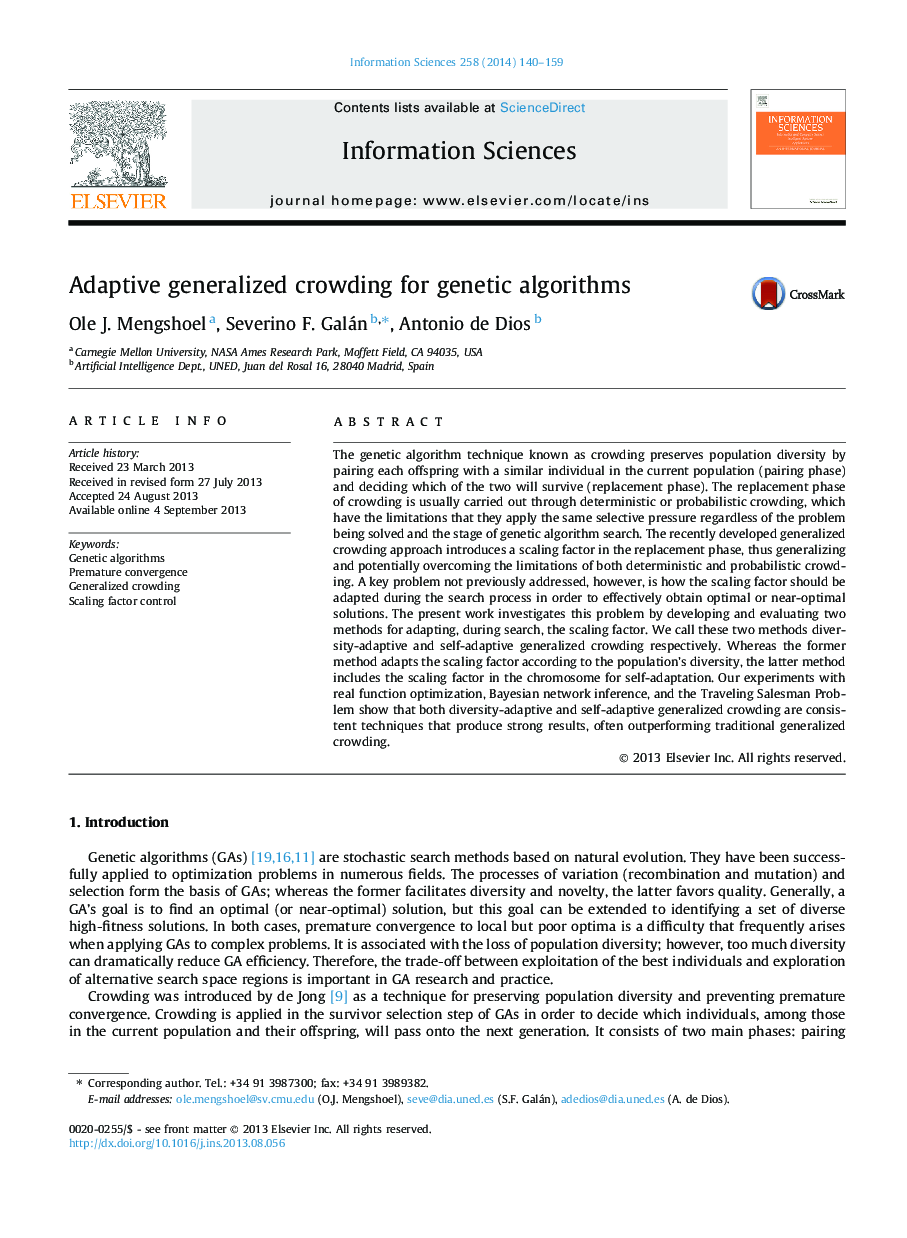| کد مقاله | کد نشریه | سال انتشار | مقاله انگلیسی | نسخه تمام متن |
|---|---|---|---|---|
| 391748 | 661997 | 2014 | 20 صفحه PDF | دانلود رایگان |
The genetic algorithm technique known as crowding preserves population diversity by pairing each offspring with a similar individual in the current population (pairing phase) and deciding which of the two will survive (replacement phase). The replacement phase of crowding is usually carried out through deterministic or probabilistic crowding, which have the limitations that they apply the same selective pressure regardless of the problem being solved and the stage of genetic algorithm search. The recently developed generalized crowding approach introduces a scaling factor in the replacement phase, thus generalizing and potentially overcoming the limitations of both deterministic and probabilistic crowding. A key problem not previously addressed, however, is how the scaling factor should be adapted during the search process in order to effectively obtain optimal or near-optimal solutions. The present work investigates this problem by developing and evaluating two methods for adapting, during search, the scaling factor. We call these two methods diversity-adaptive and self-adaptive generalized crowding respectively. Whereas the former method adapts the scaling factor according to the population’s diversity, the latter method includes the scaling factor in the chromosome for self-adaptation. Our experiments with real function optimization, Bayesian network inference, and the Traveling Salesman Problem show that both diversity-adaptive and self-adaptive generalized crowding are consistent techniques that produce strong results, often outperforming traditional generalized crowding.
Journal: Information Sciences - Volume 258, 10 February 2014, Pages 140–159
